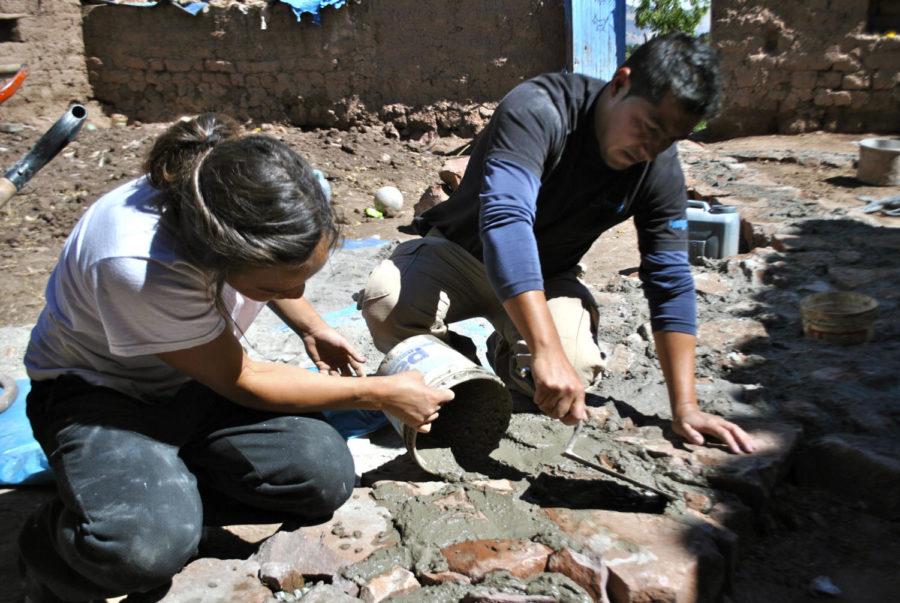Students encounter life-changing experiences in Peru
Photo courtesy of Nicole Ellis
Michelle Browning, senior in child, adult, and family services, works on a service project during her study abroad experience in Peru.
November 28, 2012
Students travel abroad to seek adventure and experience new cultures, but for some ISU students, helping people of third world countries has become the highest priority.
Michelle Browning, senior in child, adult and family services, and Nicole Ellis, junior in English, became immersed in their new surroundings in Cusco, Peru, this summer.
“I really didn’t have expectations going into the study abroad experience,” Browning said. “It ended up being amazing; it’s really hard to describe the experiences you have down there to people that haven’t had the same opportunity.”
Ellis had a similar take on the experience.
“Cusco just really stole my heart; I liked the city and the people,” Ellis said. “I don’t think two months was enough time to enjoy it, really.”
Ellis and Browning volunteered for ProWorld, an international service organization, as a part of the Healthy Homes service learning project.
Ellis plans to take the spring semester off from Iowa State in order to return to Peru as a field adviser for ProWorld. Her job will be to speak to students about traveling abroad and their service learning projects as well as speaking to Peruvians about the things they wish to see changed in their villages.
During the eight-week trip this summer, meeting the people of Peru was very rewarding, Browning said.
“It changes your perspective about a lot of things,” Browning said.
With a wide variety of project goals, health was always a big issue for Peruvians living in the countryside. Some Peruvians in the countryside walk barefoot, so students spent a lot of time building enclosures for animals, among other things. Ellis actually endured a bout of salmonella food poisoning while in Peru from eating raw lettuce.
“I would say the hardest thing was just having a reality check with yourself,” Browning said. “Kind of looking at your priorities and the materialism that we have in the U.S.”
Because some homes do not have electricity in remote parts of Peru, Ellis decided to take a printer to the ProWorld office so she could take pictures and print copies to give to Peruvians. Some Peruvians in the countryside had never seen a photograph before, Ellis said.
“[Some Peruvians in villages] live a very remote lifestyle, I would say,” Ellis said. “I like the simplicity of the lifestyle.”
Ellis noticed the strong sense of family and community immediately.
“Here people live to work, but in Cusco in Peru, in general people only work to live,” Ellis said. “They work so they can spend time with their family.”
For Browning and many others, coming back to America was hard.
“We talked about culture shock and reverse culture shock,” Browning said. “I think a lot of us had a hard time coming back and facing reality that we live in such a consumerist, selfish society compared to what we saw down there.”
Browning and Ellis both recommend that students take advantage of the opportunity to travel abroad.
“I’ve always had a heart for traveling, but I didn’t expect to find a place like that, that I wanted to stay as much as I did,” Browning said.

















